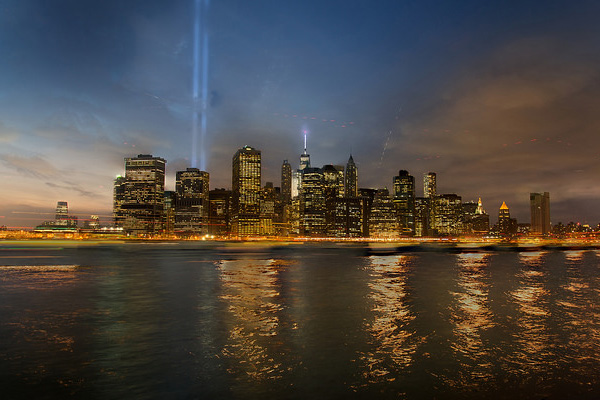
How 9/11 Reshaped America’s Feelings on Religion
- By Nathan Glover --
- 10 Sep 2015 --

The 9/11 terrorist attack not only shook America’s perception of its safety, but it also changed how Americans think about religion.
The 9/11 terrorist attack brought so many changes across the world. It forced countries to review and strengthen their security rules, particularly at borders and ports, it popularized the concept of terrorism, resulted to the creation of numerous radical or “terrorist” groups which are still very active today, made people revisit their knowledge of Islam and it even resulted in nearly a decade long war in Iraq.
But the most profound effects are felt nowhere else than in the United States. Years after battling the Saddam Hussein regime in Iraq, Al Qaeda and other terrorist groups in the Middle East, the country suffered from financial, political, and economic problems.
The 9/11 tragedy also had its impact on religion. In the United Sates, views and attitudes toward religion changed for good. According to experts, here are the most notable changes:
The U.S. acknowledged vulnerability and learned humility
Perhaps a “positive” effect of the 9/11 attack is that the U.S. eventually learned to become humble and acknowledged that it is also a vulnerable country. The United States has historically been considered as the most powerful country in the world. Americans felt so secure and some even considered themselves as the most special citizens in the world.
But things changed after the 9/11 tragedy. Americans eventually realized that just like anybody else in the world, their lives are also constantly at risk at home or at work. As Matthew Schmalz of the College of Holy Cross in Massachusetts states “We had this sense of specialness and invulnerability that 9/11 shattered.”
Rev. Thomas Long of Emory University in Atlanta adds that “We’re losing the power of the American empire and becoming more a nation among nations. The world is a much more dangerous and fragile place economically.” He continues by saying “The challenge for every faith tradition is going to be helping people grieve the loss of an image of America that they once had, and acquire a modern understanding of ourselves on the world stage.”
The campaign for a Christian America intensified
Religion has its role in the tragedy and after the terrorist attack, many have started to study and try to understand the Islam religion. But the conservative and far right Christian groups saw it as an opportunity to promote Christianity in the United States. Radical Christians on the other hand were not contented with the idea of promoting Christianity. They have also associated such terror attacks with Muslims and Islam, making people believe that the religion is essentially evil.
Although the U.S. sees itself as a country that ensures religious freedom, religious intolerance has become more evident after 9/11. As author Lynn Neal puts it “Religious intolerance is not a new feature of the American landscape. Despite being the most religiously diverse nation on earth, despite having a first amendment that protects religious rights… we as a nation and as citizens often failed to live up to those ideas.”
Interfaith dialogue became the new agenda
As mentioned above, religion is a vital factor in the attack. When a certain religion claims superiority and righteousness among all religions, it is essentially the start of conflict which may lead to dangerous consequences. This should change according to youth interfaith leader Sarrah Shahawy citing that “For one religious group to claim monopoly on truth should be obsolete.”
Interfaith dialogue has been among the top campaigns or movements in the world of religion. President Obama himself launched a college interfaith program during his first few years in office. After 9/11 Americans have fully understood that the United States is a culturally and religiously diverse country.
Atheism is no longer considered as taboo
The terror attack did not only affect the religious but the unreligious or atheists as well. Similar as to how LGBT individuals were accepted in society, atheists have also become more open and vocal of their opinions. They have also criticized the negative consequences of believing and following a certain religion.
David Silverman of the American Atheists states that “It really showed atheists why religion should not be in power. Religion is dangerous, even our own religion.” He added that “Most people know atheists now. They knew them before, but didn’t know they were atheists.”


















